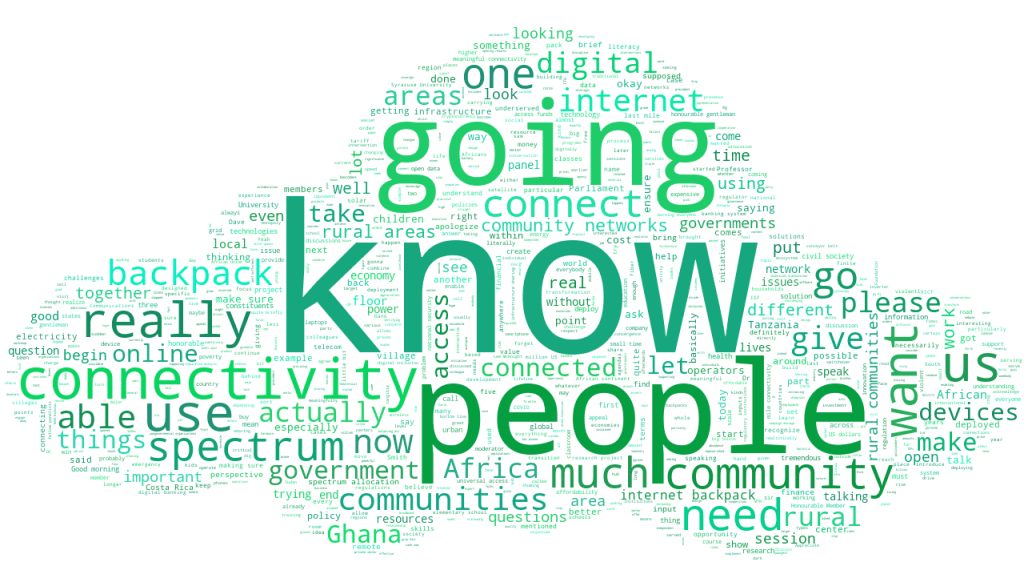Rural community networks, electricity and digital inclusion
1 Dec 2022 06:30h - 08:00h
Event report
Within the same country, one may find a disparity in internet access between different regions; urban areas often have greater connectivity than rural and remote communities. Lack of investment in infrastructure is often a precursor to the lack of connectivity in rural regions.
In discussing the promotion of greater connectivity, energy and affordability must enter the discussion. It is quite challenging to consider together the costs, provision of electricity, and connectivity in rural and remote areas.
The project titled ‘Internet Backpack’ emerges as a complementary alternative, capable of providing infinite and sustainable connectivity in 95% of the Earth’s territory. Its multifunctional feature, a micro-grid and antenna, enables decentralised access to resources in different parts of the world, bringing benefits to education, health, and emergency operations.
Spectrum allocation is another important element in promoting connectivity. Spectrum is a finite resource and is often seen by governments as a source of revenue. It is usually a sector with only a few players (monopolies). In rural communities, little or no spectrum segmentation is available to serve small-time internet providers. Big telecommunication operators seldom invest in areas with less than 5,000 people, as the earnings will not be enough to offset the expenses.
Therefore, it is necessary to engage policymakers so that they recognize small-time operators, such as community networks, and formulate timely policies to assist them. An infrastructure built by the community itself should not be seen as competing with big telecommunication operators. One should try to strike a balance between profit and benefit to a community. For example, in Ghana, the National IT Agency manages its spectrum allocations through so-called Enhanced Community Centres, which are digital hubs that provide last-mile connectivity without charge to villages. These centres allow people to improve life through the opportunities the internet offers (e.g., online classes to improve employability skills). Despite having initiatives on affordable energy (e.g., lifeline electricity tariff), Ghana still faces a lack of resources (e.g., electricity meters) and the high cost of devices.
The response to the lack of connectivity needs to be community-based and in collaboration with different stakeholders to unlock its opportunities. Therefore, the issue is not only that of promoting higher connectivity, but also that of addressing the challenges provided by the 2030 Agenda. For example, by deploying the Internet Backpack in rural and remote areas and changing spectrum allocation policies, communities could have access to digital banking systems, which would enable the creation of a digital economy. Meaningful connectivity has a transformative effect on communities, allowing people to improve their digital skills and literacy.
Civil society organisations have an important role in engaging policymakers and in making evidence on the benefits of higher connectivity visible for them. Civil servants, especially teachers, must be able to use digital tools effectively. This requires joint efforts to deliver training programmes to improve communities’ digital skills and literacy.
By Isabella Bassani
The session in keywords
Related topics
Related event


